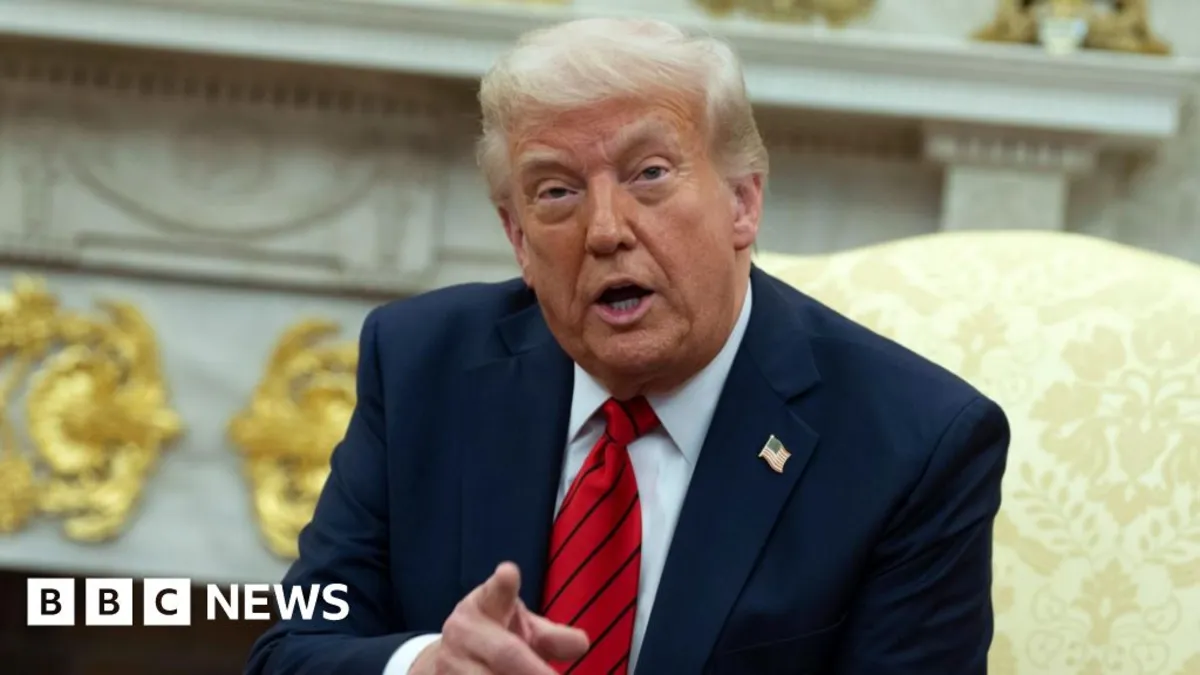
As tensions rise, Iran and the United States are preparing for a second round of critical nuclear talks in Rome. However, the atmosphere of optimism is tempered by escalating military threats and mixed messages from both sides. President Donald Trump has consistently reminded Tehran of its options, emphasizing that the choice is between a diplomatic deal or potential military conflict. He has also suggested that if these talks fail, Israel would take the lead in responding militarily.
In a recent report by the New York Times, it was revealed that Trump dismissed an Israeli proposal to strike Iranian nuclear sites as early as next month. Responding to the article, Trump stated, “I wouldn’t say waved off. I'm not in a rush to do it,” indicating his preference for diplomatic solutions. “I think that Iran has a chance to have a great country and to live happily without death... That's my first option,” he added. This approach suggests a delicate balance between diplomacy and military readiness.
These negotiations come in the wake of Trump's 2018 withdrawal from the 2015 nuclear agreement, which required Iran to limit its nuclear activities in exchange for sanctions relief. Trump argued that the original deal did not adequately prevent Iran from pursuing a nuclear weapon, leading to a renewed campaign of sanctions aimed at pressuring Iran into a new agreement. In retaliation, Iran has increasingly breached the restrictions set forth in the deal and now possesses enough highly-enriched uranium to produce several nuclear weapons, although it maintains that it has no intention of doing so.
Despite the looming threat of military action, Iran insists that its decision to return to the negotiating table is not motivated by fear. According to the website of Ayatollah Ali Khamenei, Iran's Supreme Leader, the country agreed to engage in talks only because the US limited its demands strictly to nuclear issues. Nevertheless, the path to an agreement remains fraught with challenges. The US Special Envoy to the Middle East, Steve Witkoff, emphasized the need for a framework that ensures peace and stability, which includes the cessation of Iran's nuclear enrichment program.
Witkoff's recent comments have sparked confusion, particularly after he suggested that Iran could continue enriching uranium. In an interview, he noted, “They do not need to enrich past 3.67%,” referencing the limitations established by the 2015 agreement. In contrast, Iranian Foreign Minister Abbas Araghchi highlighted the contradictory nature of the US position, asserting that while Iran is willing to build trust regarding its enrichment activities, the principle of enrichment itself is non-negotiable.
The upcoming talks in Rome coincide with a surge of diplomatic activities in the region. Recently, Saudi Arabia's Defence Minister, Prince Khalid bin Salman, visited Tehran to convey a personal message from King Salman to Khamenei. Meanwhile, Iran has warned that any US military action would result in retaliation against American bases in the region, many of which are situated in neighboring Arab countries. Araghchi also made a trip to Moscow, underscoring the strengthening military ties between Iran and Russia amidst the ongoing war in Ukraine.
Since Trump's return to office, Khamenei has consistently expressed skepticism about engaging in negotiations with the US. He has condemned the current administration's approach, labeling it illogical and dishonorable. This distrust is rooted in the US's prior withdrawal from the nuclear deal, the subsequent pressure campaign, and the assassination of General Qassem Soleimani in a US strike in Iraq in 2020.
Despite expressing satisfaction with the initial round of talks, Khamenei has cautioned against excessive optimism. He has previously warned that Iran would retaliate against any military strikes targeting its nuclear program. Some Iranian officials have even suggested that Iran might be compelled to pursue a nuclear weapon if faced with aggression. “We are not pursuing weapons, and we have no problem with IAEA oversight - even indefinitely. But if you resort to bombing, Iran will have no choice but to reconsider,” stated adviser Ali Larijani on state television earlier this month.
As the new round of negotiations unfolds, the world watches closely, aware that the stakes are incredibly high for both nations and the broader geopolitical landscape.